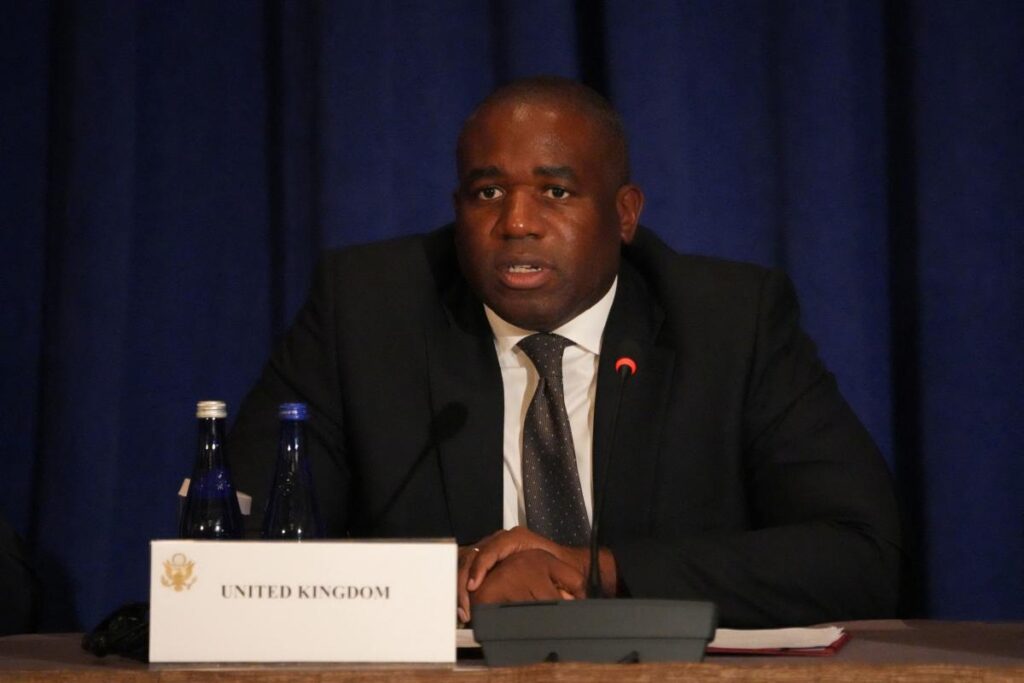UK Foreign Secretary David Lammy’s upcoming visit to China highlights a significant pivot in the United Kingdom’s foreign policy approach towards Beijing. This diplomatic mission comes amid ongoing tensions between the European Union and China, particularly regarding electric vehicle (EV) tariffs. The Labour government in the UK has framed the recalibration of relations with China as an “epoch-defining challenge,” indicating a strategic desire to engage more constructively with the world’s second-largest economy. Despite this diplomatic openness, the UK government maintains a critical stance on China’s human rights records, which reflects a nuanced position that aims to balance economic interests with ethical concerns.
The backdrop of Lammy’s visit includes ongoing conflicts between the European Union and China over trade, specifically the recent decision by the EU to impose tariffs of up to 45% on Chinese-made electric vehicles. In retaliation, China has threatened to levy reciprocal tariffs on various European goods, including dairy products, brandy, pork, and automobile parts. This situation underscores the complexities within the international trade landscape, where both sides are attempting to leverage their economic power while navigating potential repercussions. Lammy’s forthcoming discussions may center on finding common ground that could alleviate trade frictions while addressing mutual interests in economic recovery.
Economists and analysts have noted that while China has issued threats of retaliation, there is a limit to their capacity for countermeasures. Tariffs on luxury goods from Europe are less likely since these products yield higher tax revenues for the Chinese government. Additionally, imposing tariffs that could deter Chinese consumers, who are becoming increasingly budget-conscious, would be counterproductive for Beijing. Commentators suggest that the Chinese government is aware of the delicate balance it must maintain between asserting its power in the trade arena while ensuring that it does not hamper domestic consumption.
The UK’s approach aims to rejuvenate its declining economy through renewed engagement with China, particularly in sectors where Chinese investment could be beneficial. The Labour government believes that pursuing discussions over Beijing-backed investments could provide a much-needed stimulus for the UK’s strained economic conditions. By prioritizing dialogue, the UK hopes to rehabilitate its economic landscape and stabilize its relationship with China, which has been characterized by previous tensions exacerbated by issues ranging from trade disputes to human rights criticisms.
As Lammy leads this diplomatic undertaking, the broader context of UK-China relations reflects a complex interplay of cooperation and contention. Despite concerns around human rights violations and the political climate in China, the UK government recognizes the importance of maintaining open lines of communication. This diplomatic stance signifies a willingness to engage in constructive dialogue with Beijing, focusing on economic collaboration while continuing to address critical issues on the human rights front.
In summary, Lammy’s visit to China represents a strategic shift in the UK’s foreign relations, aiming to strike a balance between economic imperatives and ethical considerations. While navigating existing trade tensions with the European Union, the UK’s Labour government is prioritizing a diplomatic approach to strengthen its ties with China, demonstrating an understanding of the importance of international partnerships in an increasingly interconnected global economy. The outcome of these discussions and the potential for renewed cooperation could have lasting implications for both nations moving forward.

